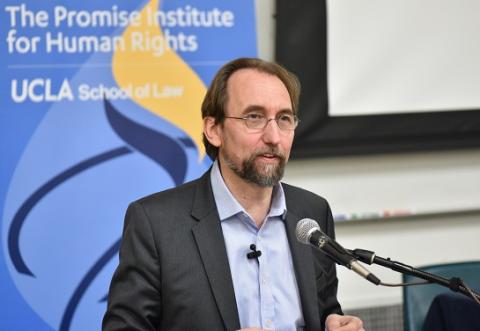
More than 150 leaders in human rights, critical race theory and third world approaches to international law convened at UCLA School of Law on March 8 for the symposium “Critical Perspectives on Race and Human Rights: Transnational Re-Imaginings.”
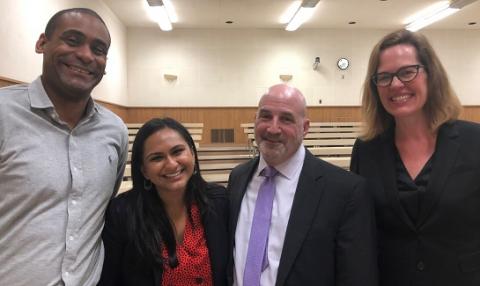
Three UCLA School of Law students have won prestigious fellowships through which they will serve immigrants and indigent defendants after they graduate in May. In addition, one recent UCLA Law graduate earned a fellowship for his work in helping people who are incarcerated in California.
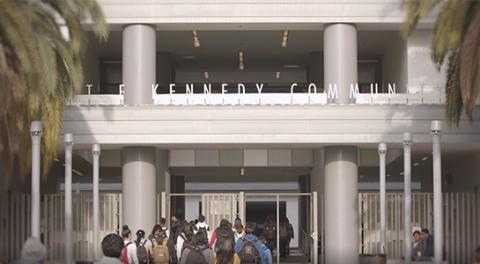
UCLA today celebrated the opening of the Immigrant Family Legal Clinic at the Robert F. Kennedy Community Schools in Koreatown.
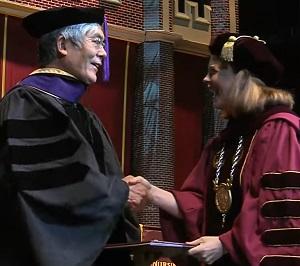
UCLA School of Law professor Hiroshi Motomura was awarded an honorary degree by Loyola University New Orleans at the school’s commencement ceremony on May 11.
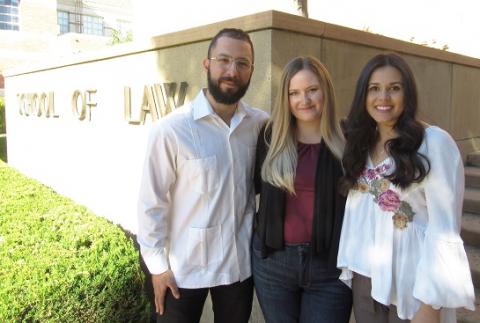
Three UCLA School of Law students have received Skadden Fellowships to pursue public interest law after they graduate. The two-year fellowships, presented annually since 1988, are among the most prestigious and competitive awards for public interest law students.
Recent UCLA School of Law graduate Dellara Gorjian ’20 has received the UC President’s Award for Outstanding Student Leadership for her advocacy on behalf of DACA recipients. The award was announced by President Janet Napolitano at the July 30 UC Regents meeting.
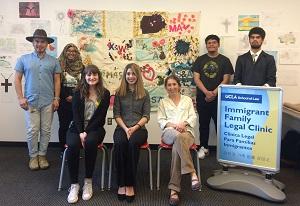
Four members of an immigrant family who fled persecution in Mexico were recently granted legal asylum in the United States, thanks to the dedicated work of students and faculty at UCLA School of Law’s Immigrant Family Legal Clinic.
Center for Immigration Law and Policy
A hub for immigration scholarship and advocacy, engaging community organizations, practitioners, lawmakers and experts in the field.
Founded in 2020, the Center for Immigration Law and Policy (CILP) at the UCLA School of Law expands the law school’s role as a national leader in immigration law and policy. CILP generates innovative ideas at the intersection of immigration scholarship and practice; serves as a hub for transforming those ideas into meaningful changes in immigration policy at the local, state, and national level; and empowers students with unique opportunities for experiential learning through work with academics, practitioners, policymakers, and activists.